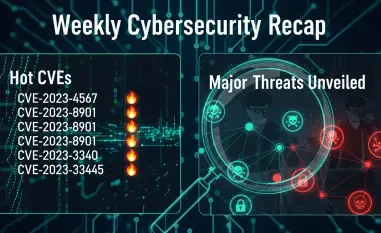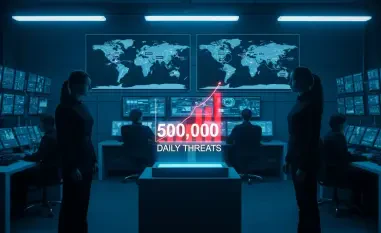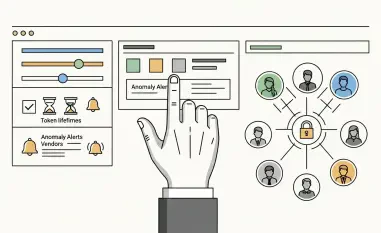In a significant move against cybercrime, Israeli authorities recently apprehended Rostislav Panev, a dual Russian and Israeli national, at the behest of the US Department of Justice (DoJ). Panev, 51, is accused of his involvement with the notorious LockBit ransomware group, serving as a developer from 2019 until early 2024. The criminal charges, unsealed by the DoJ, allege that Panev played a pivotal role in the creation of LockBit’s malicious code, maintaining its infrastructure, and crafting functionalities designed to disable antivirus software and spread the malware across victim networks.
Detailed Charges Against Panev
Accusations and Role in LockBit Development
The charges against Panev stem from his alleged critical contributions to the LockBit ransomware group’s activities. Detectives assert that Panev was instrumental in developing the malicious code used by the group, which has been responsible for an alarming number of cyber-attacks globally. His work allegedly included not only writing the code but also ensuring that the ransomware could bypass security measures. Panev’s involvement deepened as he maintained the group’s infrastructure, which kept the ransomware active and capable of striking new targets efficiently.
Further scrutiny revealed that Panev was particularly adept at developing tools that disabled antivirus software, allowing the ransomware to infiltrate systems undetected. This aspect of his work significantly amplified the impact of LockBit’s attacks. His technical skills made it easier for the malware to spread through victim networks, causing extensive damage and financial losses. Investigators cited key evidence found on Panev’s computer, which included credentials that provided access to LockBit’s source code repository and control panel, further substantiating his deep involvement.
Financial Transactions and Digital Evidence
In addition to the technical evidence, financial transactions between Panev and the LockBit group’s main administrator, Dmitry Yuryevich Khoroshev, also known by the alias LockBitSupp, were uncovered. These transactions provide a compelling link between Panev and the group’s leadership. Between June 2022 and February 2024, Panev received approximately 0,000 in cryptocurrency payments from Khoroshev. Panev admitted to Israeli authorities that these payments were compensation for the coding, development, and consulting services he provided to the LockBit group.
Private messages exchanged between Panev and Khoroshev further incriminate him. These communications delineate the specifics of Panev’s contributions and payments, offering a detailed view of his operational role within LockBit. This digital evidence, coupled with the cryptocurrency payments, paints a comprehensive picture of Panev’s involvement and his significance within the ransomware group’s hierarchy. Such evidence is crucial in the prosecution’s efforts to build a concrete case against Panev and dismantle the broader network.
Broader Implications of Panev’s Arrest
Efforts to Dismantle LockBit and Similar Groups
Panev’s arrest is part of a broader initiative by the United States and its allies to combat ransomware and other forms of cybercrime. The United States has charged seven individuals linked to LockBit thus far. While some await sentencing, others, including Khoroshev, remain at large. The US remains steadfast in its pursuit and has offered rewards of up to $10 million for information leading to the capture of key figures within the ransomware group. LockBit has reportedly attacked over 2,500 entities in 120 countries, including 1,800 in the US alone, securing at least $500 million in ransom payments and inflicting billions in losses.
This has prompted a concerted effort among international law enforcement agencies to collaborate and share intelligence. The overarching goal is to disrupt the operations of such ransomware groups and bring their perpetrators to justice. The arrest of Panev signals a significant victory in these ongoing efforts, highlighting the importance of international cooperation in tackling global cyber threats. Agencies worldwide are increasingly recognizing the necessity of pooling resources and information to counter the sophisticated tactics employed by cybercriminal organizations.
Previous Arrests and Sentencing
In a significant crackdown on cybercrime, Israeli authorities have recently apprehended 51-year-old Rostislav Panev, a dual Russian and Israeli national, following a request from the US Department of Justice (DoJ). Panev is suspected of being an integral part of the infamous LockBit ransomware group, where he reportedly served as a developer from 2019 until early 2024. The criminal charges, now publicly disclosed by the DoJ, accuse Panev of playing a key role in the development of LockBit’s harmful code. He is also alleged to have maintained its infrastructure and created features specifically designed to disable antivirus programs and propagate the malware across victims’ networks. This arrest underscores the continued international effort to combat ransomware and other cybercrime activities. The DoJ’s unsealing of these charges represents a determined global effort to pursue and prosecute those who engage in and facilitate such disruptive and damaging cyber activities.













